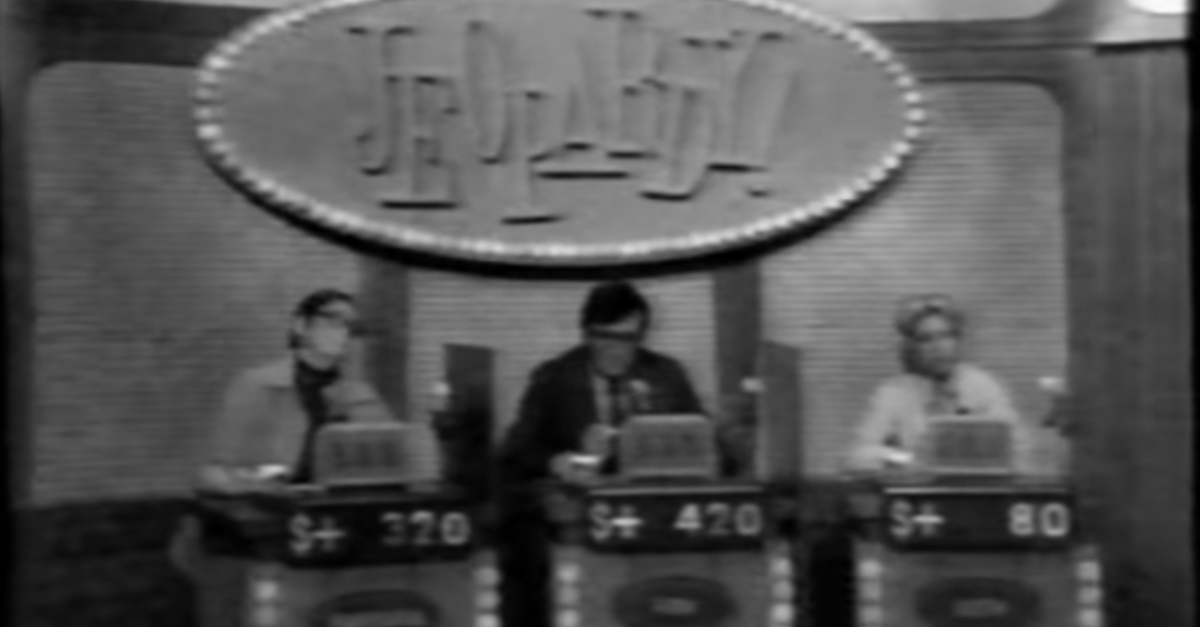Jeopardy, one of the most iconic quiz shows in television history, has captured the hearts of millions of viewers worldwide. But who first hosted Jeopardy, and how did this legendary game show begin its journey? In this article, we will explore the origins of Jeopardy, its first host, and the fascinating story behind its rise to fame. If you're curious about the man who first graced the stage as the host of Jeopardy, keep reading!
From its debut in 1964 to its current status as a cultural phenomenon, Jeopardy has undergone several transformations while maintaining its core charm. The show's success is often attributed to its unique format, intellectual appeal, and charismatic hosts. Understanding the origins of Jeopardy and its first host provides valuable insight into the evolution of this beloved program.
In this article, we'll delve into the life and career of the first host of Jeopardy, examine the show's early years, and explore how it has evolved over the decades. Whether you're a trivia enthusiast or simply curious about the history of television, this article will provide you with a comprehensive look at the origins of Jeopardy and the man who first hosted it.
Read also:Unveiling The Remarkable Journey Of Survivor Terry Deitz
Table of Contents
- The Origins of Jeopardy
- Who First Hosted Jeopardy?
- Biography of Art Fleming
- The Unique Format of Jeopardy
- Art Fleming's Legacy
- The Evolution of Jeopardy
- Jeopardy's Popularity and Ratings
- Art Fleming vs. Alex Trebek
- Impact on Television and Culture
- The Future of Jeopardy
The Origins of Jeopardy
Jeopardy was created by Merv Griffin, a renowned television producer and entertainer, in 1964. Griffin's vision was to create a quiz show that stood out from the crowd by challenging contestants with a unique format: providing answers and requiring them to come up with the correct questions. This innovative approach set Jeopardy apart from other game shows of the time and contributed to its lasting popularity.
Why Was Jeopardy Created?
Merv Griffin developed Jeopardy as a response to the quiz show scandals of the 1950s, where contestants were given answers in advance. Griffin wanted to restore integrity to the genre and create a show that tested contestants' knowledge fairly. Jeopardy's format, which emphasized intellectual challenge and fairness, resonated with audiences and helped establish its reputation as a credible and engaging program.
Who First Hosted Jeopardy?
The first host of Jeopardy was Art Fleming, a talented and versatile television personality. Fleming's charm, wit, and professionalism made him the perfect choice to lead the show in its early years. His tenure as host from 1964 to 1975 helped establish Jeopardy as a staple of American television.
Art Fleming's Role in Jeopardy
Art Fleming's role as the first host of Jeopardy was instrumental in shaping the show's identity. He brought a relaxed and approachable demeanor to the stage, making contestants and viewers feel at ease. Fleming's ability to connect with audiences and maintain the show's momentum contributed significantly to its early success.
Biography of Art Fleming
Art Fleming was born on May 17, 1927, in Buffalo, New York. Before becoming the first host of Jeopardy, Fleming had a successful career as a radio and television announcer. His smooth voice and on-air presence made him a natural fit for hosting game shows.
| Full Name | Arthur Fleming |
|---|---|
| Birth Date | May 17, 1927 |
| Birthplace | Buffalo, New York |
| Occupation | Television Host, Announcer |
| Years Active | 1950s - 1990s |
Early Career and Achievements
Before hosting Jeopardy, Art Fleming worked as a radio announcer and television host. He gained valuable experience in the entertainment industry, which prepared him for his role as the host of one of television's most iconic game shows. Fleming's achievements in broadcasting earned him a place in the Television Academy Hall of Fame in 1999.
Read also:Darius Ruckers Wife A Deep Dive Into Her Life Achievements And Influence
The Unique Format of Jeopardy
Jeopardy's format is unlike any other game show. Contestants are presented with answers and must provide the correct questions. This reverse quiz format challenges participants' knowledge and quick-thinking abilities. The show's structure, which includes categories, daily doubles, and final Jeopardy, adds layers of complexity and excitement to the competition.
How Does Jeopardy Work?
- Contestants compete in three rounds: Jeopardy, Double Jeopardy, and Final Jeopardy.
- Each round features categories with clues of varying difficulty levels.
- Contestants must respond in the form of a question to earn points.
- The player with the highest score at the end of the game wins.
Art Fleming's Legacy
Art Fleming's legacy as the first host of Jeopardy is undeniable. His contribution to the show's early success laid the foundation for its continued popularity. Fleming's influence extends beyond Jeopardy, as he inspired future generations of game show hosts and television personalities.
How Did Art Fleming Influence Television?
Art Fleming's hosting style set a standard for future game show hosts. His ability to maintain a balance between professionalism and entertainment made him a beloved figure in the industry. Fleming's influence can be seen in the work of many modern hosts, including Alex Trebek, who followed in his footsteps as the host of Jeopardy.
The Evolution of Jeopardy
Jeopardy has undergone several changes since its debut in 1964. The show has adapted to changing viewer preferences and technological advancements while maintaining its core format. These changes have helped Jeopardy remain relevant and engaging for audiences over the decades.
Key Changes in Jeopardy's History
- 1978: Jeopardy returned to television after a brief hiatus, featuring a new set design and updated rules.
- 1984: Alex Trebek became the host of Jeopardy, marking the beginning of a new era for the show.
- 2021: Jeopardy introduced a series of guest hosts following the passing of Alex Trebek.
Jeopardy's Popularity and Ratings
Jeopardy has consistently ranked among the most popular game shows in television history. Its ratings have remained strong over the years, reflecting its enduring appeal to audiences of all ages. According to Nielsen ratings, Jeopardy has been one of the top-rated syndicated programs for decades.
What Makes Jeopardy So Popular?
Jeopardy's popularity can be attributed to several factors:
- Its unique and challenging format appeals to intellectually curious viewers.
- The show's emphasis on fairness and integrity resonates with audiences.
- Charismatic hosts like Art Fleming and Alex Trebek have contributed to the show's charm.
Art Fleming vs. Alex Trebek
Art Fleming and Alex Trebek are both legendary hosts in the history of Jeopardy. While their styles differ, both men brought their own unique qualities to the show. Fleming's approachable and laid-back demeanor contrasted with Trebek's energetic and engaging hosting style.
How Did Their Hosting Styles Differ?
Art Fleming's hosting style was characterized by:
- A calm and composed presence on stage.
- Strong communication skills and a reassuring voice.
Alex Trebek's hosting style was marked by:
- An energetic and interactive approach to hosting.
- A passion for trivia and a deep knowledge of various subjects.
Impact on Television and Culture
Jeopardy's impact on television and popular culture cannot be overstated. The show has inspired countless imitations and tributes, cementing its place as a cultural icon. Jeopardy's influence extends beyond entertainment, as it has also contributed to the education and intellectual development of its viewers.
Jeopardy's Role in Popular Culture
Jeopardy has become a staple of American pop culture, frequently referenced in movies, television shows, and literature. The show's catchphrases, such as "Let's make a deal," and its distinctive theme music have become part of the cultural lexicon.
The Future of Jeopardy
As Jeopardy continues to evolve, its future looks bright. The show remains a beloved institution, with a loyal fan base and a reputation for excellence. While the passing of Alex Trebek marked the end of an era, the show's enduring appeal ensures that it will continue to captivate audiences for years to come.
What Lies Ahead for Jeopardy?
Jeopardy's future is likely to include:
- Continued innovation in format and presentation.
- Adaptation to changing viewer preferences and technological advancements.
- Expansion into new markets and platforms to reach a global audience.
Conclusion
In conclusion, Jeopardy's history and the role of its first host, Art Fleming, are essential to understanding the show's enduring legacy. From its unique format to its impact on popular culture, Jeopardy has left an indelible mark on the world of television. As the show continues to evolve, it remains a testament to the vision of its creators and the talent of its hosts.
We invite you to share your thoughts and memories of Jeopardy in the comments below. Have you watched the show since its early days with Art Fleming? What are your favorite moments from Jeopardy's history? Don't forget to explore our other articles for more fascinating insights into the world of television and entertainment!


